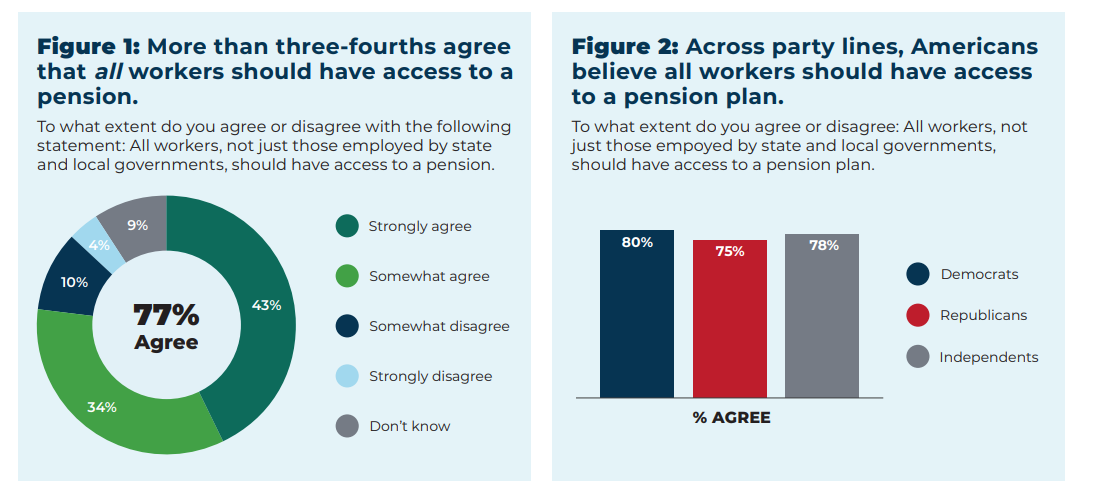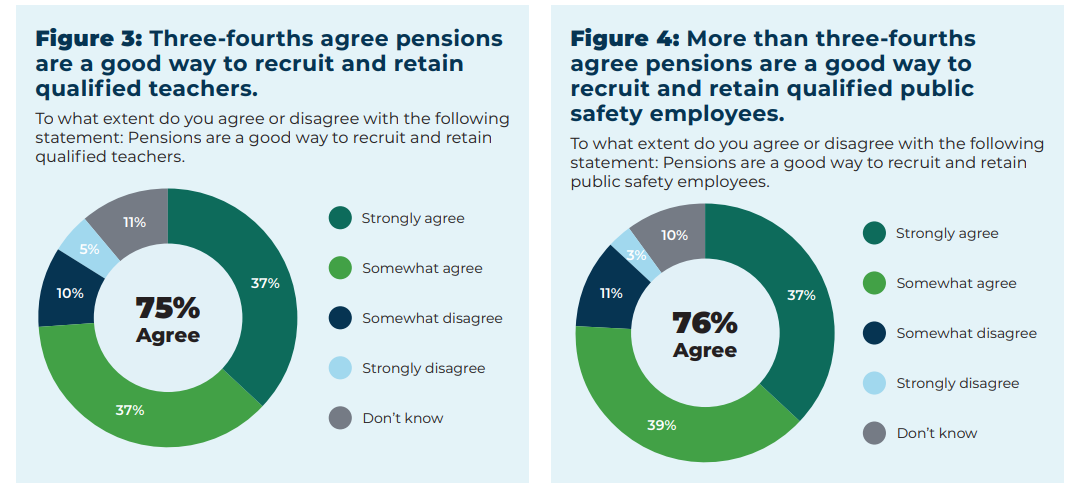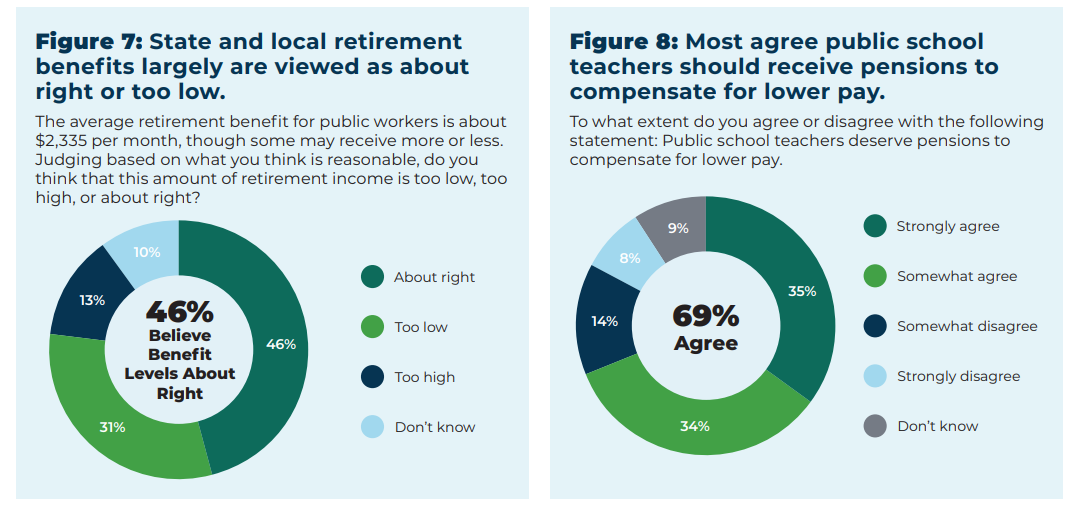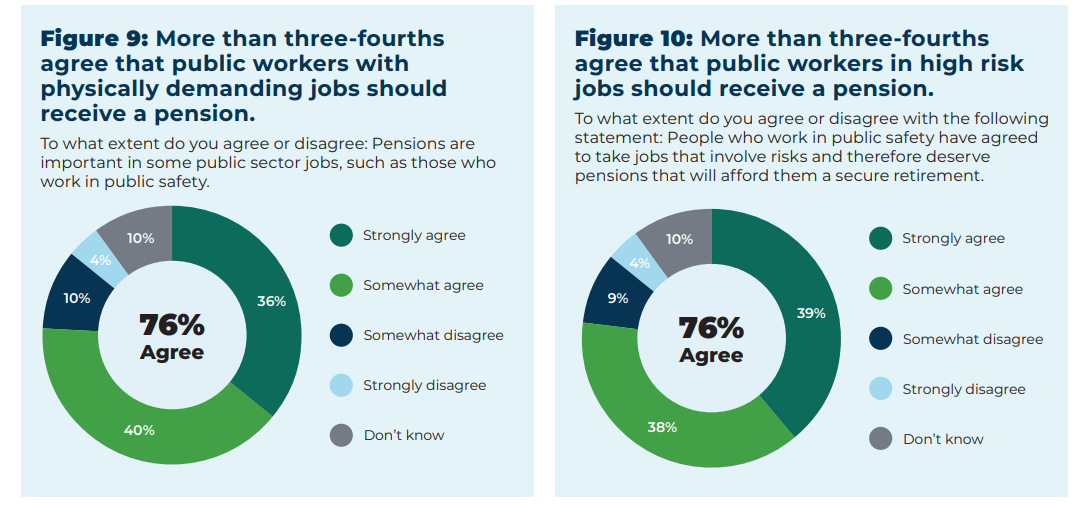
The National Institute on Retirement Security (NIRS) released a new poll recently, which shows, while Americans may disagree on many issues, most agree that pensions help ensure working people can retire with security and dignity.
Below, we summarize NIRS’ poll and illustrate what its findings mean for the current state of retirement security.
1. Americans across party lines believe all workers should have access to a defined-benefit pension plan.
Despite high polarization, NIRS found more than two-thirds of Americans think the country faces a retirement security crisis, and 76% of Americans have a favorable view of defined-benefit pensions.
According to the poll, more than three-fourths concurred with the idea that all workers, not just those employed by state and local governments, should have access to a defined-benefit pension. And self-identified Democrats, Republicans, and Independents each overwhelmingly admitted they saw eye to eye with the statement as well.

2. The vast majority of Americans agree offering defined-benefit pensions is a good way to recruit and retain state and local employees.
Poll respondents also deduced that pensions are a valuable tool for recruiting and retaining highly qualified public employees such as public educators and public safety employees. Seventy-five percent felt pensions help recruit and retain qualified teachers, and 76% thought pensions perform the same function for public safety employees.

These findings are essential for the field of public education. During the coronavirus pandemic, K-12 public employees’ job satisfaction decreased from 69% in March 2020 to 44% in October 2020, which makes the retention of these dedicated employees a critical priority.
And even before the pandemic began, many jurisdictions faced teacher shortages, as the number of workers enrolled in teacher preparation programs fell by 47% following the Great Recession from 2009 through 2018.
3. Many Americans think public employee benefits are well-earned. Most Americans also conclude public educators should receive pensions to compensate for lower wages, and public employees facing physical demands in their jobs should receive pensions.
Overall, the average retirement benefit for public employees nationally is roughly $2,335 per month. Many said they thought this modest benefit was reasonable for public employees’ retirement security, with 46% of respondents stating that that amount was about right.
Another data point from NIRS on public education revealed that public educators should receive pensions to compensate for lower pay, with 69% in agreement.

Many public employees have also continued serving our communities during the pandemic, often risking their health and safety to keep our water flowing, collect our trash, and respond to emergencies. Most of those surveyed recognized these employees’ sacrifices and stated they should receive a defined-benefit pension due to their public service, with more than three-fourths of respondents saying public employees in both physically demanding and high-risk jobs should receive a pension.

With more than two-thirds of Americans saying the country faces a retirement security crisis, we must do everything we can to ensure workers do not fall into poverty during retirement. NIRS’ survey makes clear protecting pensions is a popular, bipartisan way to guarantee public employees’ retirement security after a lifetime of serving the public.

